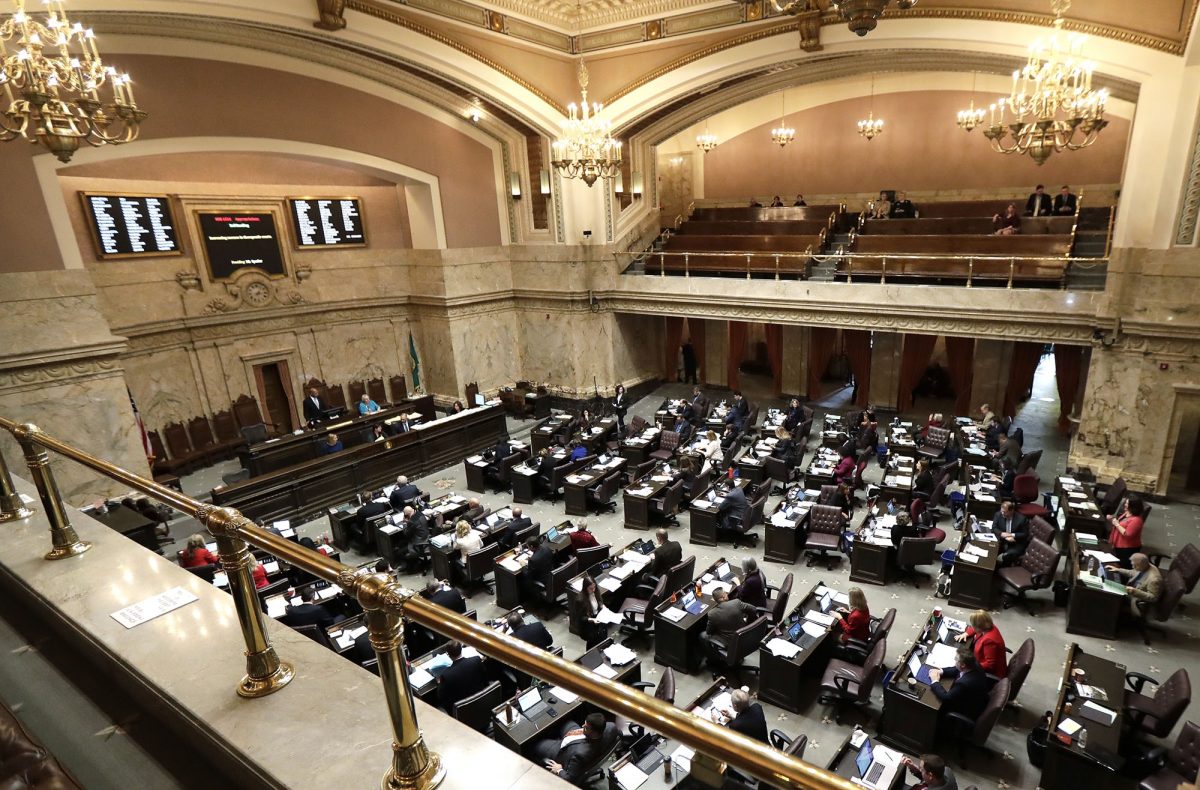Lawmakers in the House and Senate today unveiled a $1 billion, 2020 supplemental operating budget. At the center of the budget is a $160 million allotment to address housing and homelessness as well as $100 million to fund the state and local response measures to the COVID-19 outbreak.

The Morning Wire: Keeping you informed on politics, policies, and personalities of Washington State.
Senate Democrats were pleased to report that the budget agreement “includes no new general taxes and complies with the state’s four-year balanced budget requirement. It leaves $3 billion in total reserves at the end of the biennium, the largest balance in state history. Over the four-year outlook, the reserves are expected to grow to $3.6 billion.”
This budget will make progress on urgent needs across our state — public health, housing, childcare and climate resilience,” said Sen. Christine Rolfes, (D-Bainbridge Island), chair of the Senate Ways & Means Committee. “It’s a plan that balances our needs with fiscal discipline. We’ve done our best to prepare our state for an uncertain, volatile economy.”
As far as new spending, the budget tacks on $1 billion to the $52.4 billion, two-year budget passed by lawmakers last April.
This budget makes prudent and responsible investments where they are needed most. We confront the scourge of homelessness and commit significant resources to combat the coronavirus outbreak,” said Rep. Timm Ormsby (D-Spokane), chair of the House Appropriations Committee.
The additional $100 million in coronavirus funds fulfills a recent request by the state Department of Health.
Some Republicans said that the updated compromise version of the operating budget still spends too much money.
The spending level in this compromise is somewhat less than we saw from the Senate and House budgets, which shows Republicans did have some influence in these final negotiations. We’ve been cautioning the majority side to avoid taking our state’s strong economy for granted, and the coronavirus situation is now showing why. Still, a 20-percent increase in spending over the previous biennium doesn’t qualify as sustainable budgeting.”
The $160 million appropriated to build out shelters for the state’s growing homeless population and support new affordable housing programs is almost exactly half of what Gov. Inslee asked for in his supplemental budget proposal.
Across our state, too many people are living in their cars or on the street. This budget ensures that more of our neighbors will be able to find and maintain safe, affordable housing,” said Rep. June Robinson (D-Everett), vice chair of the House Appropriations Committee.
Sen. Braun took issue with where the homelesness allocation was slated to go, as well as the House striking some health care related areas of the budget.
There’s more money in here to respond to the homelessness situation, but it’s going to the same old places or to things that are unproven,” said Braun. “Also, some of the best parts about the Senate budget were lost in the negotiations with the House, and the inconsistency is disappointing. It makes little sense to increase funding for Medicaid reimbursements and post-partum coverage but fall so short on support for skilled nursing facilities and people with developmental disabilities. School districts in rural areas get good news on levy equalization but the continued lack of House-majority support for special education is hard to understand.”
Rep. Drew Stokesbary concurred with his senate colleague, saying the budget did not include sufficient measures to prepare for potential economic and environmental unrest in the future.
“[The budget] relies on a revenue forecast that does not account for the global economic shocks likely to occur if the coronavirus pandemic continues to disrupt supply chains and consumer demand,” said Stokesbary.
“This budget could have helped blunt the impacts of a future economic downturn by using our $2.4 billion surplus to make prudent long-term investments like paying down our unfunded pension liabilities or investing in forest health to reduce the cost of wildfire suppression.”
The specific areas of the budget highlighted by Senate Democrats are as follows:
- $100 million to cover costs associated with the coronavirus outbreak, including a dedicated call center, monitoring, testing and support for local health jurisdictions.
- $160 million to address homelessness and affordable housing, including:
- $60 million in one-time funding to shelter homeless adults, families and youth across the state.
- $15 million (per year) for the state’s Housing and Essential Needs program.
- $40 million for the state’s Housing Trust Fund.
- $10 million in rapid-response funding to help more individuals stay in their homes.
- $15 million (per year) for permanent supportive housing.
- $5 million for maintenance and preservation.
- $50 million to address the climate crisis by investing in communities and projects to enhance mitigation and resilience.
- $153 million to the state Department of Children and Families to reduce childcare rates for working families ($65M), strengthen the foster care system ($52M), expand early learning programs ($15M), and other increases.
- $172 million for K-12 education in the form of local levy assistance ($46M), counselors in high poverty schools ($32M), special education ($2M), pupil transportation ($41M), paraeducator training ($14M), student mental health and safety ($3M), and other increases.
- Health care: Investments in primary care physician rate increases ($10M), rural health clinics ($34M), family planning ($8M), foundational public health ($17M), and other increases.
- $51 million to help meet the increasing demand for the state new Paid Family Leave Program
- $18 million to support struggling nursing homes by increasing Medicaid reimbursement rates.
- $25 million for wildfire suppression and prevention.
- $24 million for operations at the state Department of Fish and Wildlife.
- $2 million for enhanced election technology and security.
- $4 million for state parks.
Click here to find other budget bills and documents.
Your support matters.
Public service journalism is important today as ever. If you get something from our coverage, please consider making a donation to support our work. Thanks for reading our stuff.



